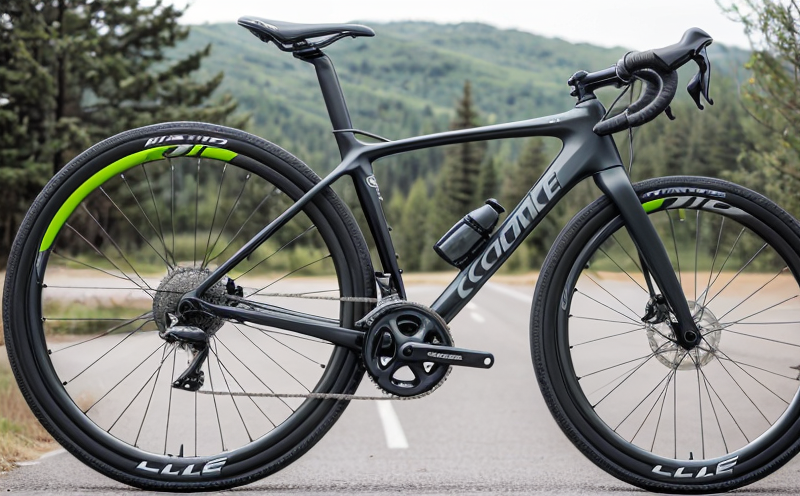IEC 63218 Cycle Life and Durability Testing of Lithium-Ion Cells in Aerospace Applications
The IEC 63218 standard is specifically designed for the cycle life and durability testing of lithium-ion cells used in aerospace applications. This standard ensures that batteries meet stringent performance requirements under a wide range of operating conditions, thereby enhancing safety and reliability in critical environments.
Our laboratory has extensive experience with this standard, providing comprehensive testing services to ensure compliance with IEC 63218. The test involves subjecting lithium-ion cells to repeated charge-discharge cycles, cycling them at various temperatures and humidity levels that mimic real-world conditions encountered during aerospace missions.
The process begins with thorough specimen preparation, ensuring the integrity and consistency of the battery cells before testing. This includes cleaning, conditioning, and calibrating the cells according to industry best practices. Once prepared, the batteries undergo a series of tests, including:
- Initial capacity measurement
- Cycling at specified temperatures (e.g., -40°C to +65°C)
- Humidity cycling up to 93% relative humidity
- Charging and discharging cycles under varying current rates
The tests are conducted using state-of-the-art equipment that ensures precise control over environmental conditions, including temperature and humidity. The data collected during these tests is meticulously recorded and analyzed to determine the cell's performance metrics such as capacity retention, impedance, and internal resistance.
IEC 63218 specifies acceptance criteria based on multiple parameters, ensuring that only batteries meeting stringent requirements are deemed suitable for aerospace applications. Compliance with this standard not only guarantees product reliability but also ensures regulatory compliance, which is crucial in the aviation industry.
The results of our IEC 63218 testing are provided as detailed reports, complete with graphs and charts that illustrate the battery's performance under various conditions. These reports serve as critical documentation for quality managers, compliance officers, R&D engineers, and procurement teams to assess the suitability of the batteries for aerospace applications.
Benefits
The benefits of undergoing IEC 63218 cycle life and durability testing are numerous. First and foremost, it ensures that your lithium-ion cells meet the highest standards of performance and reliability required in aerospace environments. This is particularly important given the demanding operational conditions faced by aircraft and spacecraft.
Compliance with this standard also offers several practical advantages:
- Increased Safety: Ensures that batteries do not fail during critical phases of flight, reducing the risk of accidents.
- Enhanced Reliability: By identifying potential weaknesses early in the development process, you can improve product longevity and reduce maintenance costs.
- Regulatory Compliance: Helps companies meet international standards, which is essential for exporting products to countries with stringent regulations.
- Competitive Advantage: Demonstrates your commitment to quality and reliability, making your products more attractive to potential clients.
In addition to these benefits, our testing service also provides valuable insights into the performance of your batteries under real-world conditions. This information can be used to refine manufacturing processes and improve product design, ultimately leading to better-performing batteries that meet or exceed customer expectations.
Industry Applications
| Application Area | Description |
|---|---|
| Aircraft Power Systems | Critical for powering avionics, navigation systems, and other essential equipment. |
| Spacecraft Batteries | Ensure reliable power supply in harsh space environments. |
| Unmanned Aerial Vehicles (UAVs) | Support extended flight times and missions under varied conditions. |
| Rocket Propulsion Systems | Maintain consistent performance during launch sequences. |
| Backup Power Supplies | Provide uninterrupted power in case of primary system failures. |
| Hybrid Aircraft Systems | Optimize energy efficiency and reduce operational costs. |
| Electric Propulsion Systems | Ensure reliable operation of electric motors for propulsion. |
The IEC 63218 cycle life and durability testing is particularly critical in these applications, where the reliability and safety of lithium-ion cells are paramount. By adhering to this standard, manufacturers can ensure that their batteries perform consistently under extreme conditions, thereby enhancing overall system reliability.
Why Choose This Test
Choosing IEC 63218 cycle life and durability testing is a strategic decision for any company involved in the development or production of lithium-ion cells intended for aerospace applications. Here are several reasons why this test is essential:
- Regulatory Compliance: Ensures that your products meet international standards, which is crucial for compliance with aviation regulations.
- Risk Mitigation: Identifies potential issues early in the development process, reducing the risk of failures during critical operations.
- Quality Assurance: Provides detailed data on battery performance under various conditions, enabling continuous improvement.
- Customer Confidence: Demonstrates your commitment to quality and reliability, enhancing customer trust.
- Predictive Maintenance: Helps in planning maintenance schedules by identifying potential degradation early.
- Enhanced Reputation: Establishes your company as a leader in innovation and quality within the aerospace industry.
The comprehensive nature of IEC 63218 testing ensures that you are prepared for any challenges that may arise during operational phases. By choosing this test, you are investing in the long-term success and reliability of your products.





